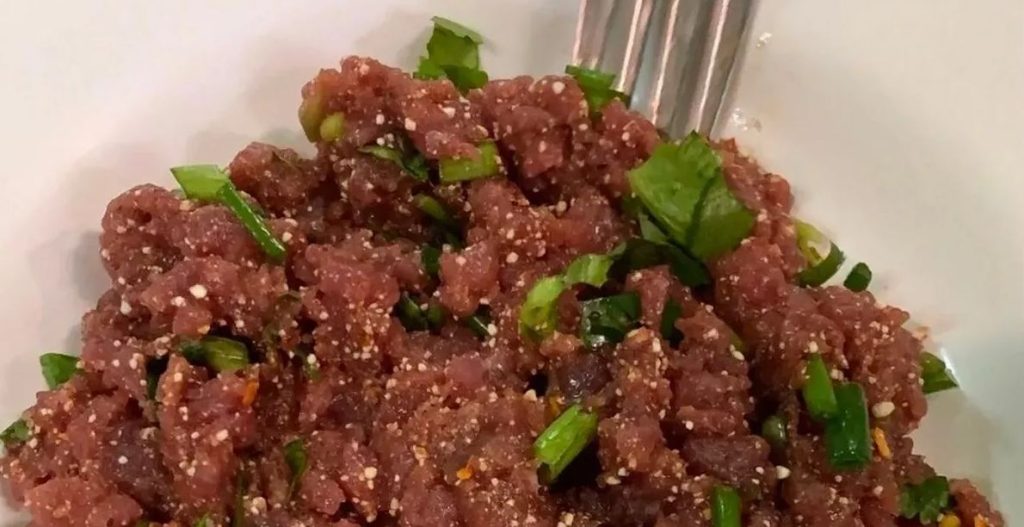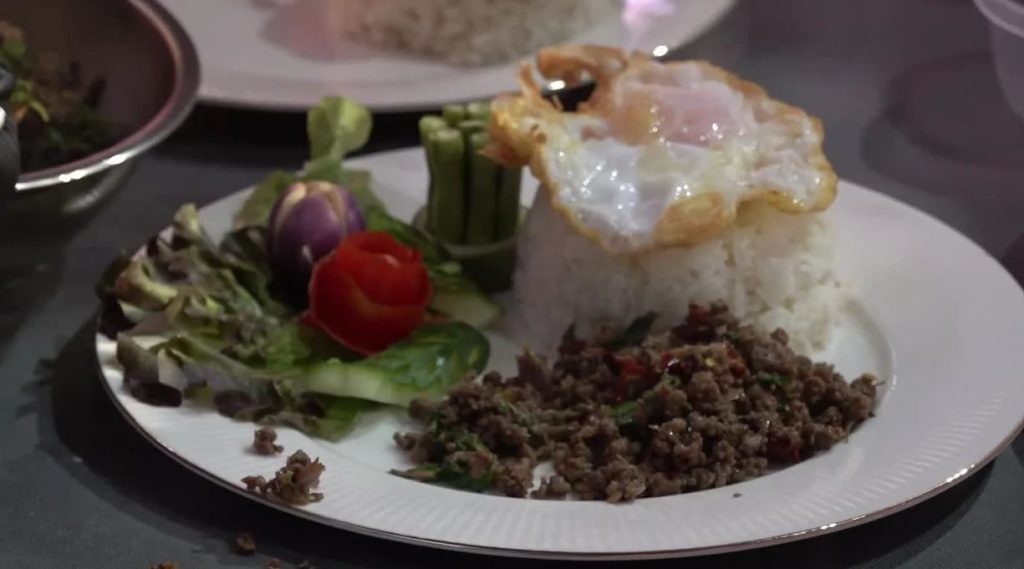A popular Thai dish, koi pla, has been linked to a significant number of liver cancer cases in Thailand. This traditional meal, made from chopped raw freshwater fish mixed with herbs, lime juice, and sometimes live red ants, is particularly prevalent in the northeastern region of the country. While it is cherished for its unique flavor, consuming koi pla poses serious health risks due to the presence of parasitic liver flukes.
The Hidden Danger: Opisthorchis viverrini
The primary health concern associated with koi pla is the liver fluke Opisthorchis viverrini. This parasite is endemic in Southeast Asia and is transmitted to humans through the consumption of raw or undercooked freshwater fish. Once ingested, the fluke can reside in the bile ducts, leading to chronic infections. Over time, these infections can cause inflammation, fibrosis, and ultimately cholangiocarcinoma, a deadly bile duct cancer. The International Agency for Research on Cancer classifies O. viverrini as a Group 1 carcinogen, indicating its strong link to cancer in humans .

A Regional Health Crisis
In northeastern Thailand, particularly in the Isaan region, the consumption of koi pla is deeply ingrained in the local culture. This area has the highest recorded rates of cholangiocarcinoma globally. Studies have shown that in some communities, up to 80% of residents have been exposed to the liver fluke . The Mekong River, a primary source of freshwater fish for the region, is a known hotspot for the parasite.
Efforts to Combat the Epidemic
Dr. Narong Khuntikeo, a liver surgeon who lost both of his parents to liver cancer linked to koi pla, is at the forefront of efforts to address this public health issue. He has collaborated with researchers to screen villagers using ultrasound machines and urine testing kits, aiming to detect infections early. Despite these efforts, changing long-standing dietary habits remains a significant challenge. Many locals, especially older generations, are resistant to altering their traditional practices. Dr. Khuntikeo emphasizes the importance of education and awareness in combating this silent killer .
Preventive Measures and Recommendations
To reduce the risk of infection, health experts recommend thoroughly cooking freshwater fish before consumption. Freezing fish at -20°C for at least seven days can also kill the parasites. Public health campaigns are crucial in educating communities about the dangers of consuming raw fish dishes like koi pla. Implementing school-based programs and community workshops can help shift cultural perceptions and promote safer eating habits.

Conclusion
While koi pla remains a beloved dish in parts of Thailand, its association with deadly liver fluke infections and subsequent cancer cases cannot be ignored. Addressing this health crisis requires a multifaceted approach, combining medical intervention, public education, and cultural sensitivity. By raising awareness and promoting safer food practices, it is possible to honor culinary traditions without compromising public health. In recent years, Thai authorities have increased funding for liver fluke research and community outreach programs. Mobile health clinics now travel to rural areas to provide screenings and education. These efforts aim to reduce infection rates and encourage safer food preparation methods, protecting future generations from preventable, parasite-linked liver cancer.

















